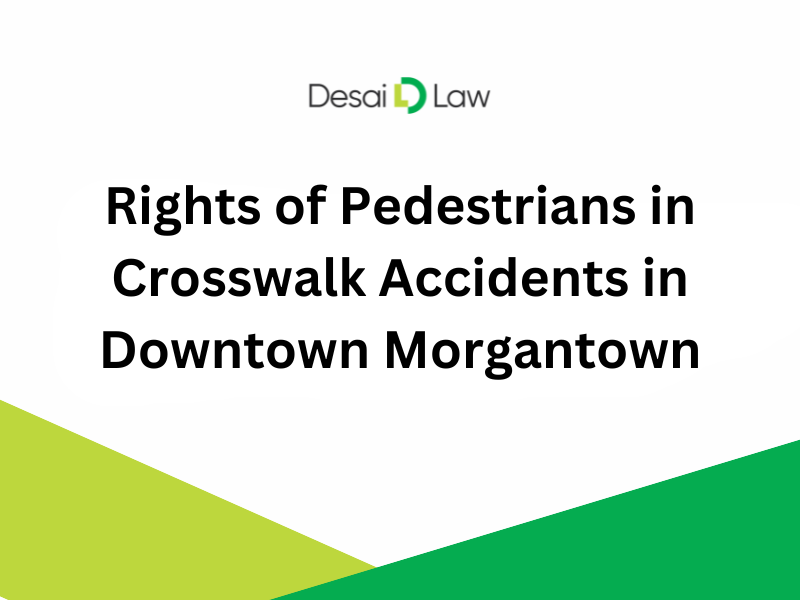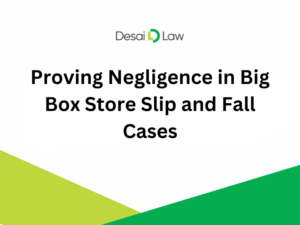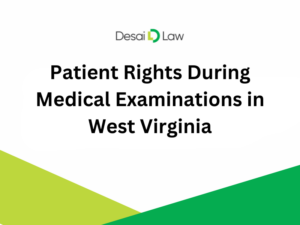Downtown Morgantown sees a steady mix of students, locals, and visitors walking from one block to the next. Whether you’re heading to class, grabbing a coffee, or just out for a stroll, walking is part of daily life here. But heavy traffic, tight streets, and impatient drivers can turn an ordinary walk into something more serious.
If you’ve been hit in a crosswalk, it’s not always clear what happens next. You might be dealing with medical appointments, missed work, and a lot of uncertainty. At the Desai Law Firm, we will walk you through your options, explain your rights clearly, and stand by your side every step of the way. Reach out now for a free consultation with a Morgantown pedestrian accident lawyer you can trust.
Why Are Pedestrian Accidents More Common in Downtown Morgantown?
Downtown Morgantown sees a lot of foot traffic, especially around the university and entertainment districts. Combine that with narrow roads, frequent intersections, and distracted drivers—and you’ve got a recipe for serious pedestrian accidents.
On busy weekends or game days, drivers are often unfamiliar with the area or just not paying attention. And let’s face it—many of them are in a rush. But none of that excuses hitting a pedestrian. If you were in a crosswalk and got hit, the driver should be held accountable, no matter how crowded or confusing the street layout might be.
Understanding Pedestrian Rights in West Virginia
Right-of-Way in Crosswalks
If you’re in a marked crosswalk at an intersection and there are no traffic signals telling you otherwise, drivers must yield to you. This is not optional. According to West Virginia Code §17C-10-2, drivers are required to stop and let pedestrians cross safely. That means if a car hit you while you were walking through a crosswalk, and they didn’t stop or slow down, they’ve likely violated state law.
Even if the crosswalk is unmarked but located at an intersection, the driver may still be at fault. The law assumes pedestrians will use intersections to cross, and it places a higher duty on drivers in those areas to watch for foot traffic.
Obligations When Crossing Outside Crosswalks
Now, there are rules for pedestrians, too, but none of them cancel out the driver’s responsibility to stay alert. If you’re crossing somewhere other than a crosswalk or intersection, you’re expected to yield to vehicles. That’s covered under West Virginia Code §17C-10-3. But even then, drivers aren’t off the hook. They’re still expected to exercise caution and avoid hitting you.
Driver Responsibilities Toward Pedestrians
Duty to Exercise Due Care
West Virginia Code §17C-10-4 lays it out clearly: drivers must use due care to avoid hitting pedestrians. That includes honking if needed and being extra careful when seeing children, elderly individuals, or anyone who may be confused or unable to move quickly. If a driver plowed through an intersection while you were crossing, that’s not a momentary lapse—that’s negligence. And when a driver ignores that duty of care, they can be held legally and financially responsible.
Yielding at Crosswalks
Failing to yield in a crosswalk isn’t just dangerous—it’s illegal. Whether the driver was distracted, speeding, or just plain careless, they’ve broken the law if they didn’t stop for you. And if that decision led to an injury, they owe you for the harm they caused. Violations like this can lead to fines, points on a driver’s license, and in some cases, criminal charges.
Steps to Take Following a Crosswalk Accident
Immediate Actions
The first thing is to get medical attention. Even if your injuries seem minor, it’s always best to get checked out. Some injuries, like head trauma or internal bleeding, don’t show symptoms right away.
Next, make sure the accident gets reported to law enforcement. A police report can be a critical piece of evidence later, especially when it comes to proving fault.
Gathering Evidence
If you’re able or if someone you trust is with you, try to gather contact information from any witnesses. Photos of the scene, your injuries, and the vehicle can also help show what happened and how serious the impact was. This kind of evidence doesn’t just tell a story. It gives your attorney the proof needed to build a strong case.
Legal Consultation
A lawyer can tell you if you have a case, what it might be worth, and what to expect moving forward. More importantly, your attorney can take over communication with insurance companies, collect records, and push for the compensation you deserve—so you can focus on recovery.
Who Can Be Held Liable in a Crosswalk Accident?
- The driver – Whether they were distracted, aggressive, or just careless, the person behind the wheel may be legally responsible for the injuries they caused.
- A government agency – If the crosswalk was poorly marked if a streetlight was out, or if visibility was blocked by overgrown trees or broken infrastructure, the city or state might share in the blame.
- The driver’s employer – If the driver was working at the time of the accident (like a delivery or rideshare driver), their employer might also be on the hook.
- Third-party contractors or property owners – If construction, signs, or obstacles made it hard to see the crosswalk, others might share liability.
How Long Do You Have to File a Pedestrian Accident Claim in West Virginia?
In West Virginia, you generally have two years from the date of the accident to file a personal injury claim. That might sound like a lot of time but the longer you wait, the harder it can be to gather evidence, track down witnesses, or build a strong case.
Connect with Morgantown Pedestrian Accident Attorneys Today
Pedestrian accidents can lead to long recoveries and a lot of unanswered questions. At the Desai Law Firm, we’ve built a strong reputation in Morgantown by getting results. We have helped clients across West Virginia recover millions through settlements and jury verdicts.
What makes us different?
- We treat every case—big or small—with the same focus and dedication.
- Our team brings real courtroom experience and results to the table.
- Morgantown clients trust us for our clear communication and honest advice.
- We work on a contingency fee basis—you pay nothing unless we win.
- We’re available 24/7 because we know accidents don’t follow a schedule.
Dial (304) 974-1974 or get in touch online. Let us handle the legal side while you focus on healing.





